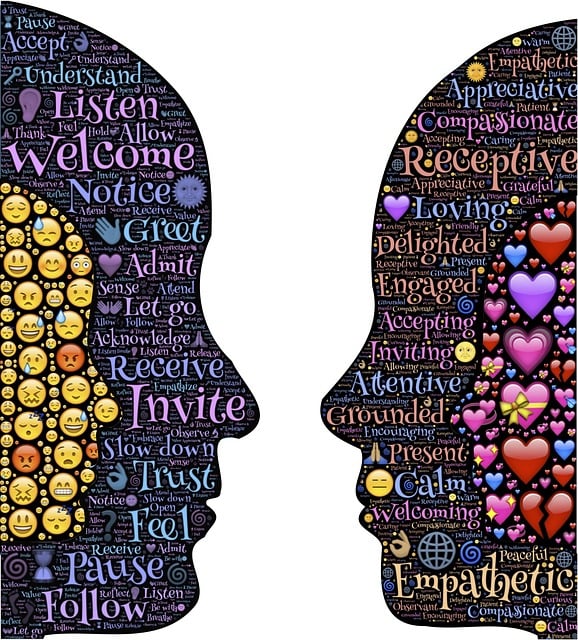Relationship therapy is a powerful tool for couples facing marital challenges like communication breakdown and emotional intimacy issues. It provides a safe space to explore problems, enhance communication, and restore emotional connections. The process involves initial assessments, structured sessions focusing on active listening and "I" statements, conflict resolution techniques, and rebuilding intimacy. Through professional guidance, couples gain insights, learn healthy coping mechanisms, heal emotional wounds, and strengthen their bond. Regular therapy sessions are crucial for maintaining progress, adapting to changes, and ensuring long-term marital fulfillment.
Marital challenges are a common struggle, but seeking relationship therapy can be transformative. This comprehensive guide explores the multifaceted benefits of counseling for couples facing difficulties. From understanding underlying issues like communication gaps and infidelity to navigating the therapeutic process and rebuilding intimacy, we provide insights for stronger, healthier marriages. Discover expert tips on finding the right therapist, effective communication techniques, and strategies for long-term marital success through relationship therapy.
Understanding Marital Challenges: Common Issues and Their Impact

Marital challenges are a common struggle that many couples face, often stemming from various issues within their relationships. Understanding these challenges and their impact is the first step towards healing. Some prevalent problems include communication breakdown, where partners struggle to express their needs and listen to each other effectively; conflicts over core values or life goals, leading to disagreements on significant decisions; and a lack of emotional intimacy, resulting in partners feeling disconnected and unloved.
These issues can create a cycle of negativity, affecting not just the couple’s connection but also their individual well-being. Relationship therapy, or counselling, plays a pivotal role in navigating these challenges by providing a safe space for couples to explore their problems, improve communication, and reconnect emotionally. Through professional guidance, they can gain insights into their dynamics, learn healthy coping mechanisms, and develop strategies to foster a stronger, more fulfilling partnership.
The Benefits of Relationship Therapy for Strong Bonds

Relationship therapy, or couples counseling, offers a safe and structured environment for partners to explore their challenges and strengthen their bond. Through this process, individuals gain valuable insights into their relationship dynamics, allowing them to understand each other’s perspectives and needs better. By fostering open communication, therapists enable couples to navigate conflicts constructively, promoting healthier interactions.
One of the significant advantages is learning effective conflict resolution skills. Couples often struggle with misunderstandings, which can escalate into bigger issues over time. Relationship therapy teaches them to address these challenges head-on, encouraging active listening and empathy. This enhanced understanding leads to deeper connections, improved trust, and a more robust foundation for their relationship, ensuring they can overcome obstacles together.
Identifying the Right Therapist: Finding Expertise in Your Area

Finding the right therapist is a crucial step in navigating marital challenges and seeking relationship therapy. It’s important to look for professionals who specialize in couples counseling and have experience handling similar situations. You can start by asking for referrals from trusted sources like family, friends, or religious communities. Local community health centers, mental health clinics, and hospitals often offer resources and can direct you to qualified therapists.
Online directories and search engines are also useful tools to identify relationship therapy experts in your area. Look for therapists with specific training in areas such as communication skills, conflict resolution, and attachment styles. Verifying their credentials, licensing, and the types of therapeutic approaches they use ensures that you’re receiving expert care tailored to your unique needs.
Navigating the Therapeutic Process: What to Expect During Sessions

In a relationship therapy setting, sessions are designed as safe and confidential spaces for couples to explore their challenges openly. The process begins with an initial assessment where therapists gather information about each partner’s background, expectations, and specific issues within their marriage. This helps tailor the therapeutic approach to meet their unique needs.
During regular sessions, therapists facilitate active listening, encourage honest communication, and guide partners through various exercises aimed at improving connection, conflict resolution skills, and understanding. These may include role-playing scenarios for practicing difficult conversations, joint problem-solving activities, and introspective assignments to gain deeper insights into one’s thoughts and feelings. The ultimate goal is to empower couples with the tools to navigate their challenges collaboratively, fostering growth and strengthening their bond in a supportive environment.
Communication Techniques: Building Bridges Through Words

In any successful relationship, open and honest communication is key. Relationship therapy often emphasizes the importance of developing effective communication techniques as a foundational step to resolving marital challenges. This involves active listening—a skill that allows partners to truly understand each other’s perspectives and emotions. By focusing on what the other person is saying, rather than preparing a response, couples can build bridges through words, fostering empathy and connection.
Additionally, expressing oneself clearly and respectfully is crucial. This includes using “I” statements to share feelings without blaming, and practicing constructive ways to address conflicts. When both partners feel heard and respected, they are more likely to engage in productive conversations, leading to deeper understanding and stronger bonds in the relationship therapy process.
Reconnecting and Rebuilding: Strategies for Regaining Intimacy

Reconnecting and rebuilding intimacy is a crucial aspect of overcoming marital challenges, and relationship therapy plays a vital role in this process. Through professional guidance, couples can learn effective communication strategies to navigate conflicts constructively. By exploring underlying issues and re-establishing emotional connections, they begin to mend the bond that may have been damaged over time.
In relationship therapy sessions, partners engage in activities designed to foster understanding and empathy. This might include practicing active listening, expressing feelings honestly, and learning to validate each other’s experiences. These strategies help create a safe space for vulnerability, allowing couples to reconnect on a deeper level. As trust is rebuilt, intimacy can gradually be reintroduced, fostering a renewed sense of closeness and strengthening the relationship.
Dealing with Emotional Pain: Healing and Moving Forward Together

In many cases, marital challenges stem from unaddressed emotional pain within a couple. Relationship therapy provides a safe and supportive space for both partners to confront and process these painful feelings together. Through active listening and effective communication tools taught by a qualified therapist, couples can learn to understand each other’s perspectives, identify underlying issues, and express their needs in healthy ways.
Healing from emotional pain involves acknowledging and validating each partner’s experience, fostering empathy, and promoting forgiveness. In this process, couples can rebuild trust, strengthen their connection, and rediscover the love and intimacy that brought them together. Together, they learn to navigate conflicts constructively, enhance communication, and cultivate a deeper understanding of one another, ultimately paving the way for a stronger, more fulfilling relationship.
Maintaining Progress: Long-Term Support for Lasting Marriages

Maintaining progress in a marriage is an ongoing effort that requires commitment and support. While initial counseling sessions can provide valuable tools and strategies to navigate challenges, long-term success often hinges on continued access to relationship therapy. Regular check-ins with a therapist allow couples to revisit issues, reinforce positive changes, and adapt to evolving circumstances.
Relationship therapy offers a safe space for open communication, fostering deeper understanding between partners. Through ongoing guidance, couples can develop healthier conflict resolution skills, strengthen their emotional connection, and cultivate resilience in the face of life’s ups and downs. This sustained support is crucial for maintaining the momentum gained during initial counseling, ultimately contributing to lasting marital fulfillment.
